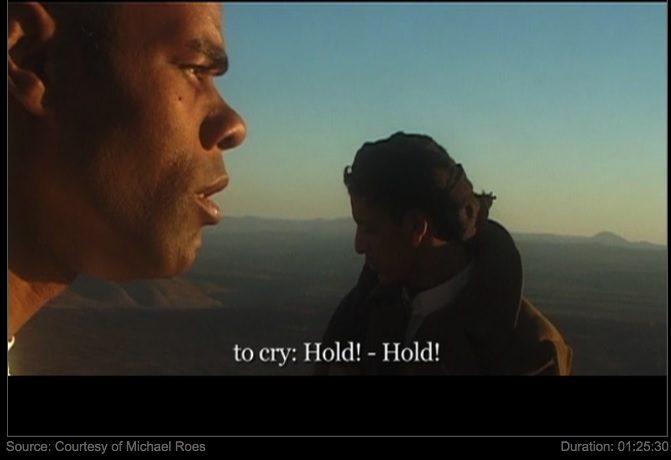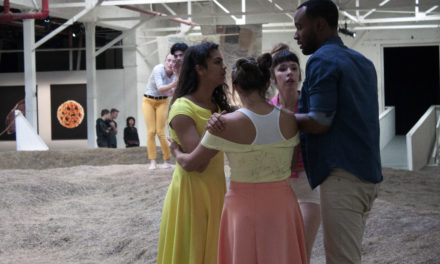Voodoo Macbeth? Heir apparent of the Denmark Corporation in Manhattan? A pair of star-crossed lovers from feuding families selling chicken rice in Singapore? In the past century, stage, film, and television adaptations of Shakespeare have emerged in the UK, US, Canada, and the performance cultures of Europe, the Middle East, Asia and Asia/Pacific, Africa, Latin America, Russia, Australia, New Zealand, and far-flung corners of the globe. Shakespeare’s plays often feature locations outside England, Scotland, and Wales, and characters from various parts of the world. In fact, the history of global performance dates back to Shakespeare’s lifetime.
Since the sixteenth century, his plays have been performed in many parts of the world and in an increasing number of languages, dialects, and styles. Since the late 1590s, Shakespeare’s work and name have been closely associated with the open-air theatre and cultural institution known as the Globe in Southwark. During his lifetime, Shakespeare’s plays were performed in Europe and were subsequently taken to corners of the globe that seemed remote from the English perspective, including colonial Indonesia in 1619. Even though it is not the only venue associated with the playwright, the Globe in London has generated many of the ideas and tropes about Shakespeare’s universal appeal.
Buoying the fascination with the idea of containing the world within the “wooden O” (Henry V) was the fact that using globes and maps was part of the early modern gentleman’s education. By the late 1590s, courts, grammar schools, and colleges were regularly adorned by globes and maps such as Gerhard Mercator’s world maps. While there are a number of theories about why the Lord Chamberlain’s Men named their playing space “the Globe” in 1599, it is likely that they did so to tap into the English enthusiasm for terrestrial and celestial globes such as the renowned 1592 globes by Emery Molyneux.
The word “global” in global Shakespeare does double duty: it is an attributive genitive naming the stakeholder and playwright of the Globe Theatre, and it is a descriptive adjective signaling the influence and significance of that theatre and of Shakespeare. Shakespeare became both an author of the Globe and a playwright of global stature.
The idea of global Shakespeare has caught on because of site-specific imaginations involving early modern and modern Globe theatres that aspired to perform the globe. All that Shakespeare and his modern collaborators inherited from imaginations of “the great globe itself” did not dissolve into thin air and are far from an insubstantial pageant (The Tempest). There are many reasons why global Shakespeares are often accompanied by a celebratory tone and much fanfare. Presentations of Shakespearian motifs, quotations, and plays on the world stage have often been construed as a source of legitimation of cultural value. Since 1876, when a recitation of the speech “To be or not to be” was transmitted via telegraph wires, as reported by Sir William Thomson, Shakespeare has repeatedly provided demonstration or “launch content” for new communications technologies and modern media. These have included silent film, television, and the World Wide Web. Shakespeare becomes both the medium and the message.
Along with post-Cold War campaigns for soft power, festivals and directors in many countries put on Shakespeare’s plays as part of their quest for cosmopolitanism. One of the key features of Shakespearian performance in our times is cross-media and cross-cultural citations. Adaptations refer to one another across cultures and genres in addition to the Shakespearian pretext. Baz Luhrmann’s 1996 film version of Romeo And Juliet is a good example. It brings both the melodramatic and tragic elements of the play into stark relief against modern media history. The Singaporean film Chicken Rice War (dir. Cheah Chee Kong, aka CheeK, 2000) parodies Hollywood rhetoric and global teen culture by commenting on the popularity of Luhrmann’s film, which starred Claire Danes and Leonardo DiCaprio and brought the classic tale of power and passion to modern-day Verona beach. Chicken Rice War’s engagement with Shakespeare shows its director’s desire to use a global icon to critique the Singaporean government’s propaganda about the city-state’s identity: “New Asia.”
The other key feature of global Shakespeare is artistic collaboration in a post-national space. Shakespeare works are not transmitted from the center to the periphery, or from merely one country to another. Such labels as “Shakespeare in India” are not always helpful in our understanding of global Shakespeare. As evidenced by the cultural coordinates of such stage works as Sulayman Al Bassam’s The Al-Hamlet Summit, the “origin story” and reception history is far from linear or straightforward. The British-Kuwaiti play has been accused of reinforcing and benefiting from Western prejudices against the Arab region. Karin Beier’s Der Sommernachtstraum (A Midsummer Night’s Dream, Düsseldorf, 1995; Berliner Theatertreffen, 1996)features nine languages. It espouses an unabashedly utopian vision of “ein europäischer Shakespeare.” Ricardo Abad’s Otelo (Manila, 2008) appropriates the Philippine komedya, a legacy of the Spanish colonial period. Ninart Boonpothong’s When I Slept Over The Night Of The Revolution (Bangkok, 2007) is haunted by the restless ghosts of Hamlet and Thaksin Shinawatra, the ousted Thai prime minister. Other works challenge the binary of Anglo-American cultures and “rest of the world.” The German poet and director Michael Roes’s Arabic-English film Someone Is Sleeping In My Pain: An East-West Macbeth (2001) was set and shot mostly in Yemen and performed mainly by Yemeni tribal warriors who were not professional actors. Likewise, the cross-cultural double entendres in Life Goes On (dir. Sangeeta Datta, 2009) compel us to consider an entire network of cultural exchange. The British-Indian film adaptation of King Lear is set in contemporary London among an immigrant family of Hindus from Bengal. It creates a cultural location that is neither here nor there. These works complicate the notion of globalization as merely “global Westernization.”
Global and Shakespeare have become near synonyms. Global Shakespeare performances matter because their concerns are inherently local even as they travel. In this sense, global Shakespeare is a body of traveling cultural texts and a liminal space where migrating people and ideas meet. The field has reached a critical mass of participants from the arts, academe, and public and private sectors whose work is visible in publications, at conferences, at festivals, in theatres, and in institutions. Studying Shakespeare in different cultural contexts is changing how we think about globalization.
Videos of some of these works are available on Global Shakespeares, an open-access video archive.
Originally published in The Oxford Companion to Shakespeare, ed. Michael Dobson and Stanley Wells, 2nd edition (Oxford: Oxford University Press, 2015), pp. 144-145.
Alexa Alice Joubin teaches at George Washington University in Washington, D.C.; she writes about globalization and performance cultures.
This post was written by the author in their personal capacity.The opinions expressed in this article are the author’s own and do not reflect the view of The Theatre Times, their staff or collaborators.
This post was written by Alexa Alice Joubin.
The views expressed here belong to the author and do not necessarily reflect our views and opinions.


















